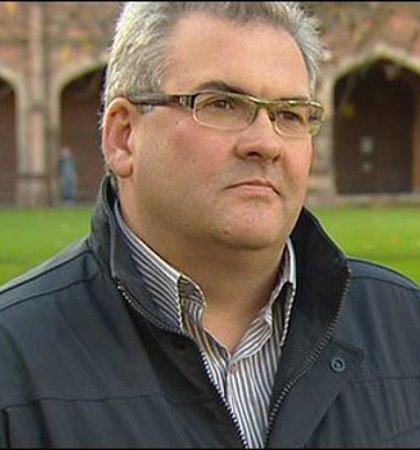THE IRISH community in Liverpool is calling for an official St Patrick’s Day parade — 50 years after sectarian tensions led to the annual celebration being cancelled.
Community leaders have been coming out in support of a large-scale parade to take place to rival those of London, Birmingham and Manchester.
But some have expressed concerns about “politicised” celebrations leading to further tensions.
The call comes just weeks after the Irish Government claimed St Patrick’s Day is a key opportunity to attract investment to Ireland.
Liverpool has not had a St Patrick’s Day parade since the late 1960s when anti-Irish sentiment during the Troubles led to the annual celebration being called off.
In 1996, an attempt to reintroduce the parade was met with anger and protests by loyalist communities in the city and was once again cancelled.
Since then, Irish republican group Cairde na hÉireann has run a small-scale march around Liverpool’s Irish quarter via Scotland Road every March 17.
Declan Doolin, an 18-year-old A-Level student, has now set up a group called St Patrick’s Day Parade Liverpool.
He is calling on community leaders and cultural groups in the city to join him in organising a “global” parade to run through the city, which is home to 8,200 Irish-born people and a large second and third-generation Irish community.
“One of our main aims is to have the right to organise events that support and celebrate our heritage so we want a big parade with everyone involved,” said Mr Doolin, whose family comes from Dublin, Clare and Meath.
“I think people should support Irish community groups in celebrating their heritage.”
A committee of eight people will be coming together for their first meeting this week to put a solid plan in place.
To hold a parade on a similar scale to neighbouring city Manchester, Liverpool City Council estimates the cost would be £20,000 — with additional funds needed for policing and the parade itself.
Labour Party Councillor James Noakes said: “I personally would support it and the council already supports a lot of different cultural events for the Irish.
“But Liverpool City Council is facing the biggest cuts of any council in the country and we have to be careful with what we invest in,” explained the councillor, who comes from a mixed- religion Irish family.
“By 2016, we’ll have had a 58 per cent budget cut since 2010.”
The Irish Government recently strengthened its commitment to worldwide St Patrick’s Day celebrations.
Ireland’s Minister for Foreign Affairs Charlie Flanagan said earlier this month: “More than 7million people attended St Patrick’s Day parades and events around the world.
“Our national day provides an excellent opportunity to deepen our bilateral relationship with countries around the globe.”
The question of how to avoid sectarian tensions is a point of concern when it comes to parades in Liverpool.
“Sometimes, heritage and culture get conflicted with religion or the celebrations are politicised and that’s where the tension may come from,” said Cllr Noakes.
“Celebrating our heritage is a fantastic thing though.”
But looking to the North of Ireland could provide a solution of how to avoid a parade becoming politicised.
Belfast native Professor Peter Shirlow, the new head of the Institute of Irish Studies at the University of Liverpool, said: “It’s interesting that in places like Belfast and Derry, St Patrick’s Day is being used purely as a cultural celebration.
“A great deal of effort goes into making sure it is a celebration of Irishness without it being politicised and I think that could work in Liverpool.”
Liverpool is not the only British city that has been marred by sectarian fears around St Patrick’s Day.
Earlier this year, the British Irish Parliamentary Association called on the Scottish Government to support a parade through Glasgow city, which has an annual festival but no parade.
Like Liverpool, the Glasgow community is supportive of a large-scale parade going ahead.
While support is widespread for a St Patrick's Day parade to take place, funding may prove the final hurdle for Liverpool’s Irish community.


